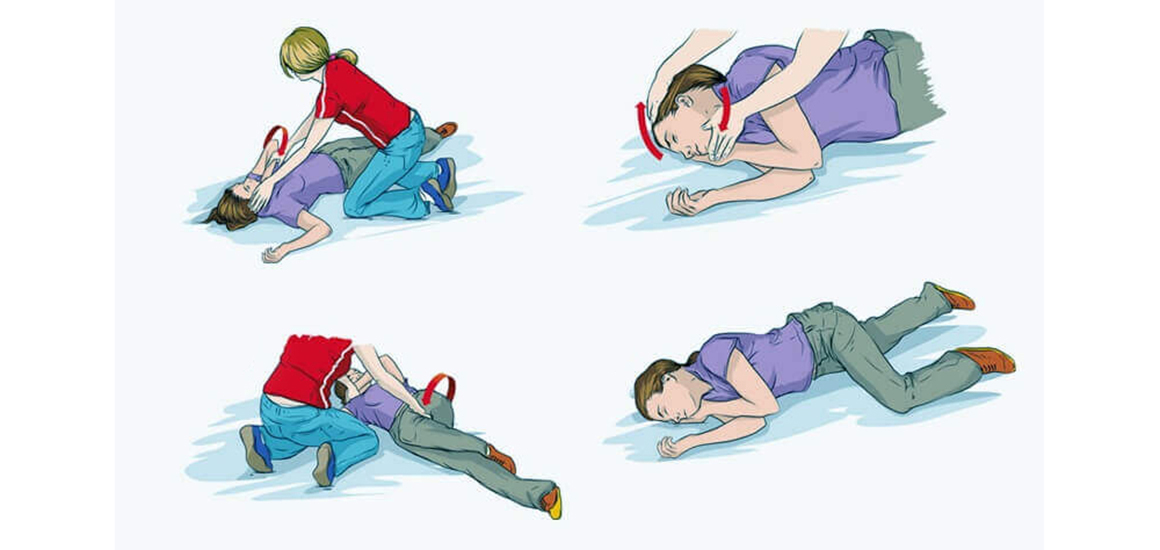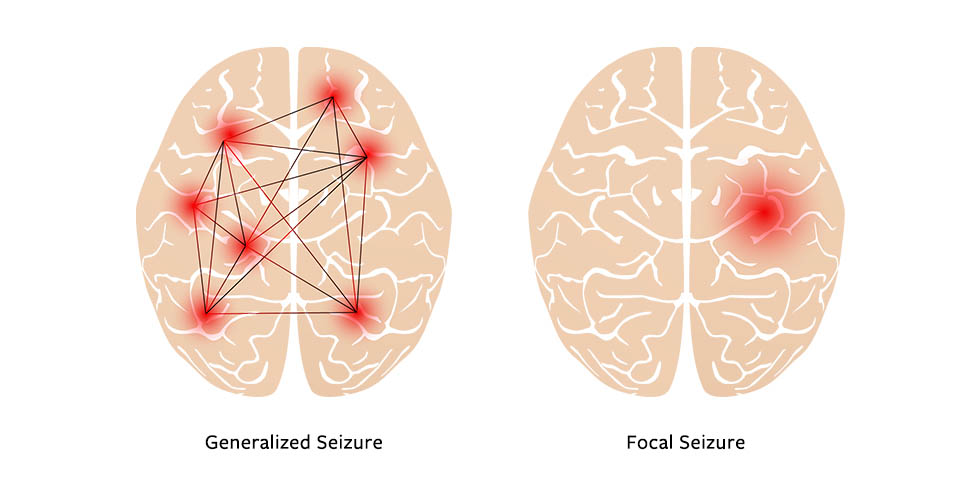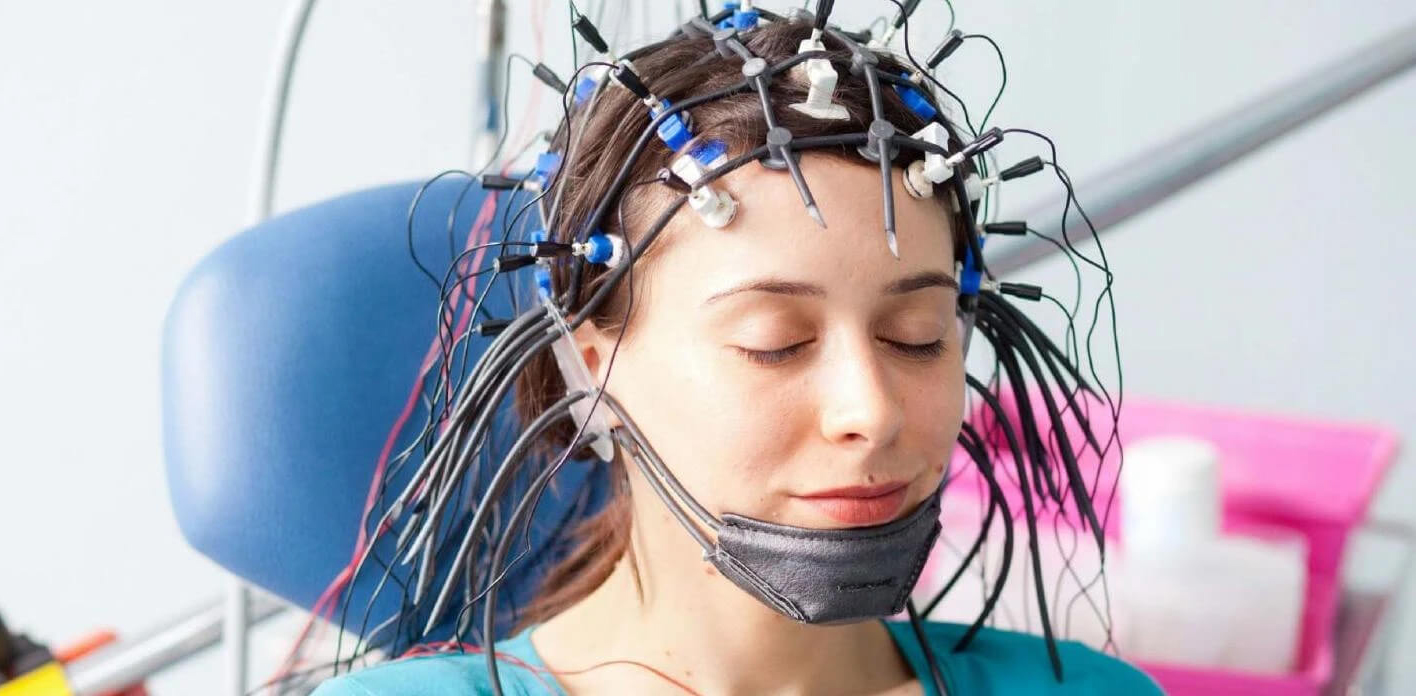Calls for Ukraine
Calls for Europe
Calls for USA

Epilepsy is a neurological disease that develops as a result of abnormal brain activity. With this pathology, excessive electrical discharges periodically occur in certain areas of the brain, which provokes the appearance of epileptic seizures. According to statistics, more than 50 million people suffer from this disease, it is one of the most common neurological pathologies.
The manifestations of epilepsy can be quite diverse from a short-term loss of consciousness to the appearance of severe convulsions and a complete loss of control over the motor functions of the body. This disease can occur at any age, and the frequency and intensity of attacks varies greatly from patient to patient.
However, modern studies show that with proper diagnosis and well-chosen treatment of epilepsy in 70% of cases, a person can take the pathology under control and live without seizures.
This disease can significantly impair a person’s quality of life. Frequent attacks interfere with leading a normal life, being socially active. In addition, an epileptic seizure can itself be dangerous. A sharp loss of consciousness simultaneously with convulsions can lead to traumatization of a person. Depending on what a person was doing at the time of the onset of an attack, there is a risk of falling, drowning, injuring themselves, having an accident, etc. Patients may choke on their own vomit. With generalized seizures, the risk of death is significantly increased.
The greatest danger is status epilepticus. This is a condition in which seizures are constantly repeated for half an hour or more. This poses a threat to life, therefore, in such situations, urgent medical attention is required.
On average, the duration of an epileptic attack ranges from a couple of seconds to 5 minutes. If a person has a seizure in front of your eyes, you need to help him.
First aid for an epileptic seizure:

There are a number of drugs that are recommended to be taken during an attack. If you happen to be near a person who is having a seizure, they may ask you to give them certain medications. But you should not offer him any new drugs on your own.
If the attack lasts longer than 5 minutes, you need to call an ambulance. It is also recommended to call it if a seizure occurred in a person for the first time, if after an attack a person is unconscious for a long time, if a person was injured, if a seizure occurred in a pregnant woman or child.
The immediate cause of epilepsy is a malfunction in certain parts of the brain. However, why exactly this happens is not always possible to find out.
Factors that contribute to seizures include:
At the time of an epileptic attack, symptoms can vary markedly. Often there are various visual and olfactory hallucinations, mechanical movements, and cognitive impairments appear. In most cases, the development of a seizure goes according to the following scheme:
In addition, urination and defecation may occur during an attack. After an attack, there is often a feeling of apathy, drowsiness or a delayed onset muscle soreness (DOMS) due to severe muscle spasm or Todd’s paralysis (when it temporarily paralyzes half of the body or one limb).
Quite often, people do not remember the attack, as there was a loss of consciousness.

The disease has two main forms, it can be hereditary or acquired. Attacks can be generalized and focal. In generalized epilepsy, both hemispheres of the brain are involved in the pathological process. In the focal form, disorders affect a specific area of the brain.
With a focal form, it can be:
Due to the fact that a specific part of the brain is involved, each form has characteristic symptoms. For example, in the frontal form, uncontrolled movements of the limbs and head are often observed, in the occipital form, visual disturbances, such as flashes of light, partial blindness.
Generalized seizures are also divided into the following types:
Approximately three-quarters of epilepsy cases are diagnosed in childhood. The first manifestations are possible even in the first year of life, but the symptoms at this age may be more blurred, which creates some difficulties for diagnosis. For example, in the smallest, a startle, twitching of different parts of the face and body, and sudden freezing may be a sign of the disease.
As the child gets older, the symptoms become more distinct and characteristic. Strong emotions, overwork, fever, flickering light can provoke an attack of epilepsy in children.
The appearance of the first seizures of epilepsy in a child is a signal for parents to seek medical help as soon as possible. It is important to find a good doctor who can accurately diagnose the condition and choose the right treatment.
In cases where the manifestations of the disease are not clear enough and not characteristic enough, doctors talk about latent childhood epilepsy. With a latent form, there may be non-convulsive seizures. The child just kind of freezes, an absent look appears. Also, children can cover their eyes, tilt their heads back a little, involuntarily nod their heads. To accurately determine the problem, it is necessary to undergo an examination and consult with an epileptologist.
The first seizures of epilepsy often occur in children, and continue into adulthood. But it also happens that seizures first appear in an adult. They may also appear in old age. The causes of epilepsy in adults are most often strokes and neurodegenerative processes occurring in the brain. Also, in adults, against the background of prolonged alcohol abuse, alcoholic epilepsy can develop.
If a woman is diagnosed with epilepsy, there is a risk that the number of seizures will increase during pregnancy. Seizures during childbearing increase the risk of premature birth, lead to a more difficult course of pregnancy, and there is a risk of injury. However, statistics show that in about 80% of cases, pregnancy does not lead to the activation of the disease. In addition, if a woman did not have seizures for 9 months or more before pregnancy, then most likely they will not be during the period of bearing a child.
With proper preparation and correction of treatment, in most cases, pregnancy and childbirth go well. Doctors do not recommend pregnancy only for women with severe forms of epilepsy. To eliminate possible difficulties, when planning a pregnancy for women with this diagnosis, it is necessary to consult with an epileptologist.

Diagnosis of epilepsy in adults involves the use of a number of studies:
In children, diagnosis requires a special approach. For example, sedation may be required during an MRI, as it may be difficult for a child to lie on the table for a long time without moving during the examination.
For treatment, doctors use conservative and surgical methods. The tactics of epilepsy treatment are selected individually, taking into account the causes of the disease and the characteristics of the condition. Therapy is aimed at reducing the number of seizures or completely eliminating them, increasing the comfort of the patient’s life and bringing the disease into remission.
Conservative treatment involves the appointment of antiepileptic drugs and dietary modification. Treatment of epilepsy of various types can be carried out with the help of drug therapy. The effectiveness of treatment largely depends on how accurately the drugs are chosen and the dosage is determined.

If conservative treatment does not give the desired result, surgical treatment of epilepsy may be recommended, which today is represented by various methods:
Prices for surgical treatment of epilepsy vary greatly. Pricing is influenced by the following factors:
To find out the options for the cost of the operation, please contact us. The medical coordinator of MedTour will provide you with the necessary information and make preliminary calculations on prices.
As a preventive measure for epilepsy, doctors recommend:
This disease significantly impairs the quality of life and can negatively affect its duration. However, if the right treatment is chosen, a person can live a long and fulfilling life.
The frequency of seizures can vary greatly depending on the cause, type of epilepsy, and other features of the condition. An epileptic seizure can be once in a lifetime, happen once a year, occur several times a week.
If the seizures follow one after another for 30 minutes or more, and the person between them does not come to his senses, doctors speak of status epilepticus.

An epileptic seizure occurs when certain parts of the brain are overactivated, causing groups of neurons to become overexcited. The attack itself is a peculiar way of the body to “reset” the overexcitation of the brain and normalize its work. As a rule, after a few minutes, this happens, and the person’s condition returns to normal.
Most often, after a seizure, a person feels normal within a few minutes. But there are cases when, after an attack, the head starts to hurt badly. Often a person does not remember what happened to him at the time of the epileptic episode. Sometimes nausea and vomiting may occur after an attack.
An epileptic seizure can be confused with hysteria, panic attacks, and some motor tics. Errors in diagnosis lead to incorrect prescription of treatment, which does not produce results. To take the state of health under control, it is necessary to accurately determine the problem and find out all its nuances. Therefore, it is very important to get to a good doctor-epileptologist and undergo a qualitative examination.
With the right treatment, a person can lead a full life. However, doctors recommend people with epilepsy to avoid:
If a person is going to play sports or swim, it is important that there is someone nearby who can come to the rescue if an attack starts.
Today, this diagnosis no longer seems as scary as it used to be. With the right tactics of therapy, it is possible to significantly reduce the frequency and severity of seizures. The MedTour platform cooperates with the best clinics in Ukraine, Turkey, Spain, Israel, Germany, South Korea and other countries of the world, which use the most advanced epilepsy treatment methods and achieve very good results. The medical coordinator of MedTour will help you choose the clinic that will best suit your needs.
On the MedTour website you can find the best specialists from around the world. We work with highly qualified epileptologists who own advanced therapy methods and have extensive experience in the treatment of epilepsy.
You have the opportunity to get an online consultation and be treated by the world-renowned neurologist and epileptologist, professor from Barcelona, Antonio Russi Tintori. The doctor treats severe forms of the disease in children and adults, using various innovative surgical techniques.
Please rate the work of MedTour
